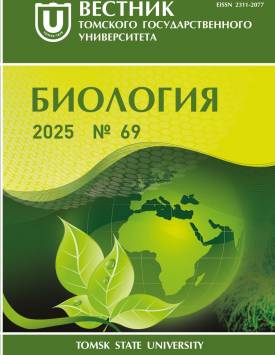Towards the generation of safe naïve human pluripotent cell lines
Naive pluripotent stem cells (PSCs) have become an invaluable tool for biomedical research over the last decade. They correspond to pre-implantation epiblast blastomeres and have a broad differentiation potential into embryonic and extraembryonic derivatives. Under certain conditions, naive PSCs can initiate X-chromosome inactivation during differentiation, but this occurs in a non-random manner, with a preference for the X-chromosome, which was already inactive prior to the PSC conversion to the naive state. As a result, the enormous potential of naive PSCs is not fully exploited, prompting the need to improve the conditions for the derivation and maintenance of naive PSCs. In this study, we evaluated the ability to induce random X chromosome inactivation (rXCI) by naive embryonic stem cells (ESCs) cultured in three modifications of HENSM medium. We returned primed HuES9 ESCs to the naive state in three media: HENSM-LA (supplemented with the growth factors LIF and Activin A), HENSM-L (supplemented with LIF only) and basal HENSM-0 without factors. The resulting cultures demonstrated a morphology and other characteristics of naive pluripotency (See Fig. 1a-e), including increased expression of naive pluripotency-associated transcription factors such as TFCP2L1, KLF17 and DMNT3L (See Fig. 1, f). Naive HUES9 cultures grown in HENSM medium without Activin A and/or LIF show significantly higher expression of the totipotency genes LUETX, TPRX1 and ZSCAN4 (p < 0.01) (See Fig. 1, f) and an increase in the proportion of cells with the LEUTX transcription factor, characteristic of 8C-like human totipotent cells (See Fig. 2, a). Thus, the absence of growth factors in HENSM medium results in naive cells approaching the totipotent state. We also found that naive human PSCs maintained in HENSM medium without growth factors have a greater potential to induce rXCI during differentiation (See Fig. 2). The likelihood of rXCI triggering in naive HuES9 ESCs in HENSM medium increases with the proportion of cells expressing totipotency markers. This suggests that the capacity for rXCI in humans is restored close to the totipotent state. These results will help to improve the conditions for the generation and maintenance of naive human PSC, allowing their unique properties to be more widely exploited in biomedical research. The article contains 2 Figures, 5 References. The Authors declare no conflict of interest.
Keywords
naive human pluripotent stem cells, X-chromosome inactivation, cell models of human diseasesAuthors
| Name | Organization | |
| Shevchenko Alexander I. | Institute of Cytology and Genetics, Siberian Branch of the Russian Academy of Sciences | epigene@bionet.nsc.ru |
| Arssan Amin Mhd | Institute of Cytology and Genetics, Siberian Branch of the Russian Academy of Sciences | arsanmhdamin@yandex.ru |
| Zakharova Irina S. | Institute of Cytology and Genetics, Siberian Branch of the Russian Academy of Sciences | zakharova@bionet.nsc.ru |
References

Towards the generation of safe naïve human pluripotent cell lines | Vestnik Tomskogo gosudarstvennogo universiteta. Biologiya - Tomsk State University Journal of Biology. 2025. № 69. DOI: 10.17223/19988591/69/21
